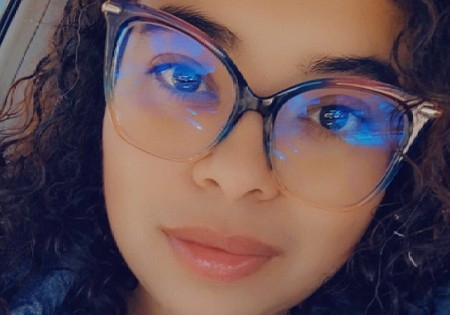
As a working mom with two daughters—one of whom had health issues from an early age—Sara always put her children and her husband, Raul, first. Unfortunately, that meant she often ignored her own health concerns, which included shortness of breath, dizziness, heart palpitations and, at times, debilitating chest pains.
“I was just 26 years old, and I couldn’t go up a flight of stairs without feeling extremely winded,” says Sara, a certified medical assistant (CMA) from Newark. “It felt like I had run a whole mile.” When she did seek medical help, doctors believed anxiety might be causing her symptoms.
But she didn’t find the true cause of her discomfort until her brother, then 14, joined his high school football team. An electrocardiogram taken during his sports physical showed an abnormality. He eventually went to a New York City hospital, where he was diagnosed with hypertrophic cardiomyopathy (HCM), a type of genetic and life-threatening heart disease marked by thickening of the heart muscle, which makes it harder for the heart to pump blood.
“As his doctor is explaining the symptoms of HCM to my brother, I’m realizing I have all those symptoms too,” Sara says. Her whole family then underwent genetic testing for HCM. Both Sara and her oldest daughter, then age 7, tested positive.
At first, the news was devastating for Sara. Because HCM increases the risk for sudden cardiac death during high-intensity exercise, health care providers often recommend that people with HCM limit their physical activity. “Doctors in New York made me feel like I was going to die,” Sara says. “They said I couldn’t be active. I couldn’t have any more kids. I felt like my future was over. I didn’t know if I’d live to see my kids grow up.”
Then she received a referral to the Chanin T. Mast Center for HCM at Morristown Medical Center, New Jersey’s only HCM Association Center of Excellence. The center, one of the largest on the East Coast, cares for more than 1,000 HCM patients a year.
“This was the first time I was told that I could still live a long life with HCM,” Sara says. “I asked if I could have kids again. My doctor said he didn’t see why not, as long as I took my medication and followed my treatment plan.”
Since that first visit to the HCM Center five years ago, Sara’s learned to live with HCM. “I’m able to go to the gym, work out, and I can even outrun my kids, which I couldn’t do before,” Sara says.
She’s staying safe by following her treatment plan, which includes medications to help regulate her heartbeat and reduce fluid buildup around her heart. If her HCM worsens, she may need an implantable cardioverter-defibrillator (ICD), a mechanical device that helps control heart rate. Her brother, who has a more serious form of HCM, had an ICD implanted a few years ago. “He’s living his best life, and I know he has the ICD to protect him,” Sara says.
Throughout her HCM journey, Sara has forged deep connections with her care team. “They are not only my healthcare providers, but they are my counselors, my therapists, my everything,” Sara says. “When my husband lost his job and we had no way to provide for our family, I cried for an hour. HCM nurse practitioner Deatrah Dubose hugged me, talked to me, consoled me. Their whole team treats you with love and care.”
Now, Sara has joined their team. She works full-time as a CMA at Atlantic Medical Group HCM Associates and is studying nursing at Essex County Community College. “Working with HCM patients and letting them know they’re not alone is my dream come true,” Sara says. “I tell them not to let HCM define you. My brother and I are proof that you can have HCM and still live a normal life.”